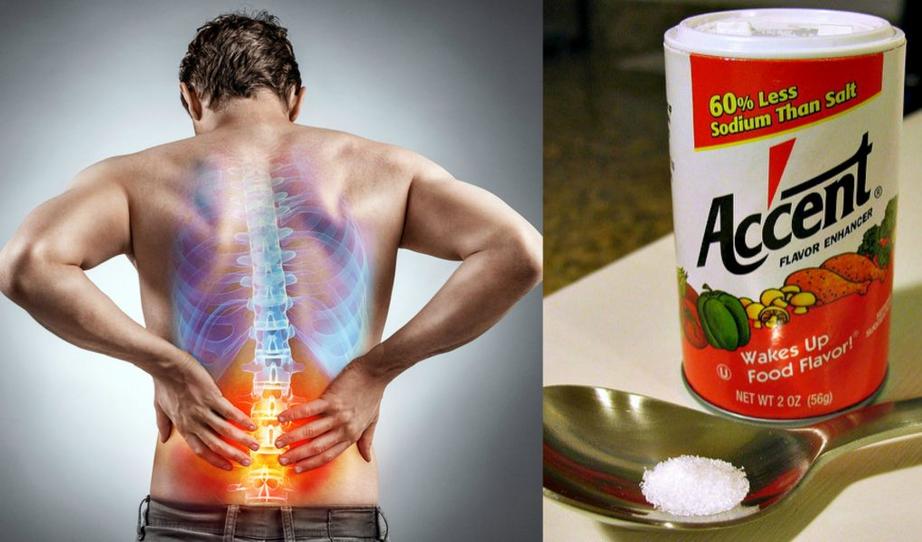Removing MSG from diet as effective for pain as painkillers – study
The best natural pain relief might be what you remove from your cabinet, not add to it.
“This would be incredible if we could impact chronic pain simply by making slight modifications to diet…”
“Results demonstrated that when study participants cut monosodium glutamate from their diets, their symptoms improved.”
Pilot study in Kenya shows link between chronic pain and glutamate consumption – Researchers then tested theory that diet change can alleviate pain.
The developing world shares an interesting, similar tie to the first world….Pain. The other interesting link both worlds share is a potential dietary aggravator of that pain…dietary MSG (monosodium glutamate).
Removing MSG from your diet may be one of the best things you ever did for your pain.
In Africa, MSG shows up most in a mixed seasoning spice called Mchuzi Mix used daily in cooking. In the Western world, it shows up in most packaged, boxed and canned foods. Even restaurants and foods that claim to be “MSG-free” often have MSG parading in other forms such as “yeast extract” or “natural flavors.” MSG is a harmful food additive and an excitotoxin – i.e., it “excites” brain cells to death. Those who are sensitive to it report headaches, migraines, nerve issues, irritability and more. It hides in over 50 U.S. food ingredients.
American University reports:
Results [from a small pilot study carried out in Meru, in eastern Kenya] demonstrated that when study participants cut monosodium glutamate from their diets, their symptoms improved. The findings are published in the journal Nutrition.
…
Some research has found that increased consumption of glutamate may enhance chronic pain symptoms, so there is biological cause for scientists to examine the chemical in relation to pain.
Glutamate is also a naturally occurring chemical in some foods, like soy sauce and parmesan cheese, but is more commonly found as a food additive. In the U.S., glutamate is added to many food products and found under many names including ‘monosodium glutamate,’ ‘hydrolyzed protein,’ ‘protein isolate,’ ‘protein extract’ and ‘autolyzed yeast extract,’ just to name a few. In Kenya, people’s exposure to glutamate is only from a few foods which contain MSG…
Kathleen Holton, lead author of the study and assistant professor of health studies at American University, said:
This preliminary research in Kenya is consistent with what I am observing in my chronic pain research here in the United States. We don’t know what exposure is leading to this susceptibility to dietary glutamate, but this pilot study suggests the need for a large-scale clinical trial, since dietary change could be an effective low-cost treatment option for developing countries.
The goal was to test whether a dietary change could perform as well as or better than an OTC medication in relieving pain.
Researchers took 30 participants and tested the effects of removing MSG, increasing water intake, or a combination of both, relative to acetaminophen (Tylenol – and the main treatment option available in Meru).
Study participants experienced chronic pain for at least three months or more and in at least three quadrants of the body. Again, similar to pain patients in the U.S., most also suffered from other neurological symptoms, “including headaches or migraines, chronic fatigue, cognitive dysfunction, and sleep issues.” An estimated 60 percent of Meru villagers reported chronic pain, twice the amount typically observed.
Participants were divided into four groups. Because dehydration is associated with headache pain, the researchers factored that in.
From American University [emphasis added]:
The groups consisted of the following: If subjects commonly consumed Mchuzi Mix, they were given a similar mixed seasoning substitute that contained no MSG. Those reporting low water intake and no MSG were given bottled water and instructed to increase water consumption to eight cups a day.
Those with low water consumption who also consumed MSG were given water and the substitute spices. The control group had neither exposure and was given acetaminophen.
The group that removed MSG from its diet and consumed more water reported significant improvements in their symptoms, as did the group receiving acetaminophen.
A larger scale study is in on the horizon to see if dietary change could be a low-cost pain treatment.
Collaborator Professor Dr. Daniel J. Clauw, M.D., who is a leading expert on chronic pain, concluded:
This would be incredible if we could impact chronic pain simply by making slight modifications to diet.
DISCLAIMER: This article is not intended to provide medical advice, diagnosis or treatment.

